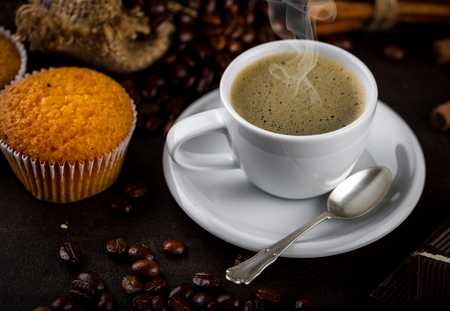Decaf on the Up: Mapping the Trend Across the UK
Once considered a niche request, decaf coffee is now enjoying a quiet renaissance across the United Kingdom. Walk into almost any coffee shop in London and you’ll spot as many oat flat whites made with quality decaf as you will their caffeinated cousins. This isn’t just a capital city phenomenon either—independent roasteries in Manchester, Brighton’s seaside cafés, and even Bristol’s vibrant coffee scene are embracing caffeine-free beans with open arms. The shift has been fuelled by a more discerning British palate, one that seeks out both taste and lifestyle balance. As health-conscious trends continue to sweep through the UK, locals no longer see decaf as an afterthought but as a statement of personal taste and wellbeing. This movement is mapped not only by the increasing number of options on café menus, but also by passionate baristas who champion small-batch Swiss Water Processed decaf or single-origin beans from remote farms. From bustling artisan coffee houses in Shoreditch to family-run establishments in Edinburgh, decaf is fast becoming part of the British daily ritual, served with a side of style and substance.
Changing Perceptions: From Stigma to Sophistication
Not so long ago, decaf coffee was little more than an afterthought on the British café menu—a bland substitute reserved for the caffeine-averse or those with a doctor’s note. Yet, in a remarkable turn, decaf is now enjoying a renaissance, emerging as a stylish choice for discerning palates across the UK. This transformation owes much to clever marketing campaigns, a surge in artisanal roasting techniques, and an embrace of uniquely British preferences for quality and flavour.
Where once decaf was mocked for its ‘watered-down’ reputation, today it benefits from transparent sourcing and small-batch production. Independent roasters now highlight their decaffeination processes—be it Swiss Water, CO2, or sugarcane methods—reassuring customers that nothing but flavour remains. It’s not just about what’s missing (the caffeine), but what’s been gained: depth, aroma, and a clean finish that can rival even the boldest espresso.
The Decaf Image Over Time
| Era | Perception | Key Features |
|---|---|---|
| Pre-2010s | Lacklustre and uninspired | Generic blends, poor availability, dismissive attitudes |
| 2010s | Growing curiosity | Improved options in high street chains; health-driven demand grows |
| 2020s | Sophisticated and desirable | Artisanal roasting, origin transparency, premium café menus |
A Nod to British Taste and Tradition
The UK’s deep-rooted love for tea has always emphasised ritual and refinement. Now, these same values are being woven into the decaf experience. From ceramic cups in Soho’s cosiest cafés to takeaway compostable cups at local markets in Bristol or Edinburgh, presentation matters as much as provenance. Brits are increasingly seeking out single-origin decafs that pair beautifully with pastries or afternoon treats—proof that decaf is no longer a second-rate selection but an integral part of Britain’s evolving coffee scene.

3. The British Palate: Why Decaf Appeals to the UK
There’s something distinctly British about taking time for a proper cup of coffee, and as tastes evolve, so too does our approach to what’s in our mugs. Decaf coffee, once an afterthought on café menus, is rapidly gaining ground across the UK—and it isn’t just about missing out on caffeine. So, what’s driving this shift? At its core, it’s a blend of health consciousness, shifting daily rhythms, and that ever-present love for a comforting brew—minus the jitters.
Health Trends Shaping Modern Choices
The British public has become increasingly attuned to wellness trends, with mindfulness and balance taking centre stage. As more of us seek ways to reduce anxiety, improve sleep, or simply moderate our caffeine intake, decaf has become an appealing option. It allows coffee lovers to indulge in their favourite ritual without worrying about unwanted side effects—a perfect fit for those prioritising both taste and wellbeing.
Lifestyle Evolution: From Dawn till Dusk
From early morning commutes to late-night catch-ups, the UK’s pace of life continues to accelerate. With flexible working patterns and busier schedules, Brits are looking for ways to enjoy coffee at any hour—without disrupting their sleep or causing that all-too-familiar afternoon slump. Decaf bridges the gap, making it possible to savour a flat white at 9pm or enjoy an Americano during a midday meeting, all while keeping calm and carrying on.
The Quintessential Brew—Redefined
Above all else, coffee culture in Britain is about connection and comfort. Whether it’s sharing stories over a cafetière or unwinding solo with a steaming cup by the window, the ritual matters as much as the drink itself. Decaf preserves every bit of this experience: the aroma, the flavour notes, even the artistry of latte foam—all without compromise. For many Brits, it’s not about losing caffeine; it’s about gaining peace of mind while still revelling in that beloved coffee moment.
4. Behind the Beans: The Art and Science of Decaffeination
For those who cherish a velvety flat white or a robust filter brew, the thought of coffee without its kick might once have seemed sacrilegious. Yet as Britain’s appetite for decaf swells, a new appreciation for the craft behind caffeine-free coffee is emerging. The process of removing caffeine is both an art and a science, demanding precision, care, and a firm commitment to flavour.
The Journey from Bean to Brew
Decaffeination begins long before your favourite London café serves up a cup. Green coffee beans undergo one of several methods to extract caffeine while safeguarding the bean’s delicate aromatics and body. UK roasters are at the forefront, choosing eco-conscious methods that align with both taste and sustainability values.
Popular Decaffeination Methods in the UK
| Method | Description | Sustainability | Taste Impact |
|---|---|---|---|
| Swiss Water Process | Uses water, temperature, and time—no chemicals involved—to gently remove caffeine. | Highly sustainable; no chemical residues. | Keeps origin character intact; popular among specialty roasters. |
| CO₂ Process | Employs pressurised carbon dioxide to selectively extract caffeine from green beans. | Energy-intensive but avoids solvents; can be reused. | Preserves complex flavours; often used for high-end coffees. |
| Ethyl Acetate (EA) Method | Naturally derived solvent (from fruit or sugarcane) removes caffeine in gentle cycles. | Biodegradable and less toxic than synthetic solvents. | Mild influence on flavour; increasingly favoured by artisan roasters. |
Bespoke Roasting: Ensuring Taste Isn’t Lost in Translation
The British love affair with quality means local roasters go the extra mile. Whether sourcing single-origin beans from ethical farms or fine-tuning roast profiles specifically for decaf, there’s genuine artistry at play. Many UK coffee houses now proudly showcase their decaf offerings on par with their signature blends—proof that taste is never compromised for the sake of going caffeine-free.
A New Chapter for British Coffee Culture
As more Britons seek out late-night espresso or health-friendly alternatives without sacrificing indulgence, decaf has found its place at the table. It’s not just about what’s missing—it’s about what remains: craftsmanship, provenance, and a deep respect for the humble bean. In this evolving landscape, the story of decaf is as rich and nuanced as any artisanal brew you’ll find across the UK.
5. Café Culture: How Coffee Spots are Embracing Decaf
Across the UK, the coffeehouse scene is in the midst of a quiet revolution. From iconic high-street names like Pret and Costa to the tucked-away independents dotted along cobbled lanes in Edinburgh or Brighton, cafés are now giving decaf pride of place on their menus. No longer relegated to an afterthought, decaf has become a statement of care, quality, and inclusivity—reflecting Britain’s evolving palate and passion for nuanced flavour experiences.
The Modern High Street: Decaf as Standard
Walk into any mainstream café chain today, and you’ll notice that decaf isn’t just available—it’s actively promoted. Whether it’s a creamy flat white or a bold Americano, baristas are trained to treat decaf with the same reverence as their signature blends. Chains have invested in superior decaffeination methods, ensuring the taste rivals their caffeinated counterparts. It’s not uncommon to overhear a regular asking for “my usual, but make it decaf,” confident that their choice won’t mean sacrificing richness or depth.
Independent Gems: Artisanal Flair Meets Caffeine-Free
Meanwhile, independent coffeehouses have taken up the challenge with typical British flair. These spots are curating single-origin decafs and experimenting with small-batch roasts, offering tasting notes that sing of chocolate, citrus, or even floral undertones. Here, ordering a decaf isn’t about compromise—it’s about exploring craftsmanship in every sip. Many cafés now offer V60 pours or Aeropress brews using specialty decaf beans, presented with all the ceremony reserved for their flagship coffees.
A Welcoming Space for All
This shift goes beyond beverage choices; it speaks to café culture itself. By championing great-tasting decaf, coffee spots create an inclusive environment where everyone—whether mindful of caffeine or simply seeking a late-afternoon treat—feels at home. In Britain’s social landscape, where meeting over coffee is practically a ritual, this inclusivity enriches both community spirit and personal taste journeys.
With thoughtful sourcing and stylish presentation, UK cafés are proving that decaf can be every bit as satisfying as its caffeinated cousin—making each visit not just a pit stop for energy, but a celebration of flavour and hospitality.
6. At Home with Decaf: Making the Perfect Cuppa
There’s something quintessentially British about savouring a well-brewed cuppa in the comfort of your own kitchen, and the rise of decaf has added a fresh twist to this cherished ritual. As more Brits seek the rich flavour of coffee without the buzz, crafting the perfect cup of decaf at home has become an art form in itself—one that blends tradition, innovation, and a dash of personal taste.
Choosing Your Beans: Quality Matters
The UK market now boasts an impressive array of premium decaf beans and pods, from small-batch roasters to high-street favourites. Look for beans that have been decaffeinated using natural methods such as Swiss Water Process or CO2 extraction; these techniques tend to preserve the complex notes and depth we all crave in a good brew. Don’t be afraid to explore single-origin options or seasonal blends—British roasters are upping their game, offering flavours that rival any caffeinated counterpart.
Brewing Rituals: A Nod to Tradition
Whether you’re a fan of the classic cafetière (French press), a pour-over devotee, or swear by your trusty moka pot, honouring British brewing traditions can elevate your decaf experience. For those who love a filter brew, try using slightly hotter water (around 96°C) and a coarser grind for decaf beans—it helps coax out the subtler flavours often muted during decaffeination. If you’re embracing modern convenience, there’s no shame in popping a quality pod into your machine for a quick fix; just be sure to recycle the capsules in line with Britain’s eco-conscious ethos.
The Perfect Serve: Personal Touches
No British coffee ritual would be complete without those little touches—a splash of oat milk, perhaps, or a homemade biscuit on the side. Many aficionados are experimenting with non-dairy alternatives or infusing their brews with hints of cardamom or orange peel for a contemporary twist. And don’t forget: part of what makes decaf special is its versatility—enjoy it morning, noon, or night without worrying about sleeplessness later on.
Tips & Insights for Home Brewers
- Freshness first: Buy whole beans and grind just before brewing for maximum flavour.
- Mind your ratios: Decaf often needs slightly more grounds per cup to achieve a robust taste.
- Experiment: Try different origins and roast levels until you find your ideal profile.
The growing availability of top-quality decaf means there’s never been a better time to embrace caffeine-free coffee at home. Whether you’re hosting friends for brunch or settling into an afternoon read, making decaf part of your daily routine is both stylish and satisfying—the perfect blend of British tradition and contemporary taste.


